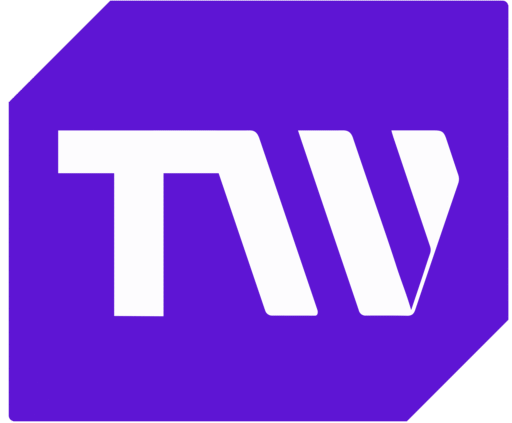Mentorship and coaching: catalyst for career advancement.
Mentorship and coaching are ultimately the heroes of personal and professional success. They are dynamic relationships that shape careers and instill success. Mentoring and coaching connect individuals with experienced leaders who provide invaluable knowledge and support. Most importantly, they allow individuals to clarify their goals, gain fresh perspectives, and learn important lessons from the errors and triumphs of individuals who have trodden similar paths.
According to statistics, 71% of people with mentors report job satisfaction. Likewise, companies that implement formal mentoring programs experience a 72% increase in productivity.
Mentoring is significant for workplace productivity through knowledge and skill transfer to less experienced professionals. The importance of mentoring in both personal and professional development cannot be overemphasized. This article delves into the transformative power of mentorship across various stages of professional life.
Impact of career mentorship and coaching.

The impact of career mentorship and coaching on career development or growth is limitless. It involves working with others to achieve goals and is a significant pointer to career and personal development.
Mentoring is a longer-term relationship lasting for about 12 months or more, typically between more experienced professionals and their mentees. The primary purpose of a mentoring relationship is the continual development of the mentee, alongside many other benefits.
For the mentorship moment, the mentor assists the mentee in navigating work environments, challenging ideas, honing new skills, and encouraging career development. Most professionals who reach the executive level cite mentoring as an essential contributor to their career success.
Coaching, on the other hand, is different from mentoring. The critical difference in coaching is that a coach handles direct experience in the industry and their job function. Coaches use tools, tailored techniques, or resource training mechanisms. This means learning is often more structured and focused in coaching than mentorship.
Statistics show increased confidence, greater productivity, and the ability to work towards goals after coaching. Also, 80% of people who receive coaching report increased confidence in their workplace. This result has to be the most significant benefit of coaching: the massive impact on confidence.
Mentoring and coaching promote a culture of continuous learning and growth, as both the professionals and the subjects exchange ideas and perspectives, resulting in a more innovative and skilled workforce. Mentoring and coaching help build a solid and productive workforce, allowing employees to collaborate, hone their skills, and learn in a supportive environment.
Career mentorship program.
Professional mentoring is more than just a catchphrase; it’s a potent instrument that can mold and direct a person’s career path. With the rapid advancement of technology, the changing nature of industries, and the fierce competition in the labor market, the need for mentorship is more important than ever.
The Career Mentor Program is an informational interviewing program that helps professionals plan and make career decisions. Through these programs, individuals can connect with coaches in the fields they are interested in. The program also pairs professionals from different sectors with mentors who are local professionals with relevant experience and hobbies. Through these mentoring relationships, professionals cultivate and enhance the abilities, knowledge, attitudes, and networks they need to transition into the world of work.
How to implement mentorship programs as an Organization.
Mentorship programs have been shown to promote deep learning and professional growth and have positive organizational effects.
The foundation of mentoring programs entails careful planning and a persistent dedication to leading participants through the mentoring process while continuously enhancing the program.
Most importantly, the mentorship program assists recent hires or those starting their careers in connecting with seasoned mentors who can offer guidance and support throughout their careers. Workplace mentoring programs can improve workplace satisfaction, retain more employees, and promote professional development. Below are the key steps to progressively build a mentorship program for every organization.
- Define the Mentorship program goal
- Outline the mentoring program tailored for the workplace
- Select program participant
- Match mentors and mentees
- Provide mentorship training
How to connect with a career mentor.

The search for a career mentor should be very intentional, and doing something other than traditional is advisable. There are no limits to who a mentor should be, either in age or field. The primary requisite is their professionalism and the fact that such an individual has what it takes experientially to help you shift ground in your career.
Creating a list of two or three potential mentors is helpful as you seek a career mentor. Likewise, be ready not to get a yes from everyone. You may find out one is too busy and unable to commit the time and effort.
When creating your list of potential mentors, be sure to tick off the following:
- Know your goals
Be articulate enough to know if your goals are long-term or short-term. The picture of your attainable goal opens you to options and helps you make the right choice. You want to be sure that, aside from the tag of being a mentee to a particular professional, they are also committed to seeing you grow. You should be able to answer some questions, such as:
- What do you want to accomplish professionally in the following career phase?
- Does your proposed mentor mirror the same possibility?
- Do they have what it takes to help you achieve your career fit?
If your goals are specific, you are just a step away from finding the right mentor.
- Do your research
There is no monopoly of action when it comes to finding a mentor. If you ask, only a few people got connected to their mentor by asking them directly to be their mentor. Proper research about your proposed mentor is equivalent to a background check, which helps you know whether to position yourself or shoot your shot.
Anyone who has risen to the mentor position has proof of their work. You should look out for their intellectual properties and connect with them virtually. Likewise, you should take note of the path they pursued to where they are today. You’d be surprised at how much you can know about them in just a short while.
- Explore Possible Mentors
When looking for a mentor, I advise individuals to exhaust or maximize the field of possible mentors available to them. These are knowledgeable individuals with whom you already have a relationship. It is easier to request mentorship from someone you know than from someone you don’t know.
If you have identified a possible mentor, don’t be too quick to contact them. Ensure you have researched well enough to discover or get familiar with their resources. Starting a conversation from this point will keep them glued to you and help them give you the right counsel. You need to be more familiar with them to think they will answer your request.
While many people will be happy to help, some of them might need more time to fulfill your request. If so, thank them for their time and contact someone else.
- Be patient
Your potential mentor candidates will likely be busy, and it could take a day, two, or a while for any of them to respond. Even if they respond as quick as you want they might not communicate at the pace that you expect.
Ensure that you do not take offense, rather you are receptive to them at every point you have to communicate.
The mentor-mentee relationship.
Mentoring a mentee is one of the most important relationships you will build in your career.
For many people, finding and working with a mentor is a pivotal point in their career. One that supports their achievement of both short- and long-term objectives and quickens their professional development.
Additionally, you can coach the upcoming generation of corporate executives after gaining a good deal of expertise.
- Show Interest
If you find a mentor who is invested in you and your career, extend gratitude by promptly acting on their counsel and asking thoughtful questions. Do your best to be an active mentor and not a passive partner.
Use active listening to comprehend and absorb the knowledge your mentor is offering as they speak. Then, to ensure you have grasped what they have said, review what you have heard.
Steer clear of interruptions and jot down the most critical points. Having a lot of inquiries will help you become more evident.
- Connect Often
Frequent communication is critical to cultivating a strong connection with your mentor. Keep in touch and check in regularly. Connecting does not have to be physical, except on special invitations from them. You can engage in various communication channels like emails, messages, and scheduled phone calls.
- Express gratitude
Mentorships only exist for a specific time frame; you should use them best. Ensure that you are intentional about making their time with you worth it beyond words. You can show appreciation by sending thank you cards and giving them gifts that resonate with them.
Whatever means you choose to express your gratitude, make sure you leave a lasting impression.
Benefits of professional coaching.
Coaching is crucial for helping individuals with various needs grow in leadership and organizational contexts. Numerous advantages come with coaching; eighty percent of recipients report feeling more confident, and more than seventy percent claim better relationships, work performance, and communication abilities. According to 86% of businesses, they more than recovered their coaching costs (source: ICF 2009).
Even still, seeking professional development is difficult work that can be simplified with the proper assistance. A licensed coach aims to honor each person’s unique pace while promoting human growth. A qualified coach can assist customers in several ways. The benefits of professional coaching include:
- Setting realistic goals
Every learning journey is unique. Your coach will determine your career vision and motivators and create a strategic action plan that fits your learning style. This plan will include goals you have the drive and skill set to accomplish, increasing the likelihood that you’ll carry them out. Since you’re always involved in the process, you’ll feel accountable for your actions and success, which improves overall performance.
- New perspective and self-confidence
A coach will likely offer insight into your growth possibilities that you may have yet to consider. You and your coach will build this action plan around your strengths, some of which you might not have noticed. This personalized attention helps you step back and understand your capabilities and the unique value you bring to the world. And achieving goals will also build your confidence during the happiness that comes with achievement.
- Accountability and motivation
Coaches frequently offer ongoing feedback and support to increase the likelihood of achieving your goals. If they know your goals and your method for achieving them, they can tell you when you’re on track and might need to adjust your course of action.
Coaches can help you increase and sustain your motivation levels to do more by utilizing your motivators, holding you accountable, and constantly reminding you of the goal.
- Support and Development
Coaches often provide continual feedback and help improve your chances of reaching your goals. If they know your goals and how you plan to achieve them, they can help you determine when you’re on track and when you may need to modify your action plan.
Coaches can boost and maintain your motivation to achieve more by using personal motivators, accountability, and frequent goal reminders.
Different types of coaching.
- Executive Coaching
Executive leadership coaching is one of the most popular and well-known forms of workplace coaching. It’s a powerful method for helping your most essential leaders perform better, supporting them through crucial changes, and changing behaviors that might impede their effectiveness.
This leadership coaching is targeted at an organization’s senior leaders. Typically, an executive coach deals with company-wide change, fosters team cohesiveness, and implements new ideas.
It is ideal for entrepreneurs, high-level executives, and individuals who establish the direction and objectives of a company
2. Integrated coaching
The “integrated coaching” strategy incorporates coaching sessions into a more extensive leadership development program or project. It can confirm and strengthen teachings from leadership education.
While it often lasts less than executive coaching engagements, this kind of workplace coaching can guarantee that leadership development lessons “stick.”
3. Team Coaching
Effective team coaching works for front-line teams as well as the C-suite. It’s another essential kind of coaching for the workplace because even highly productive people sometimes have trouble collaborating.
These coaches, who practice group coaching, train team members in collaboration skills. They might also lead longer, more focused meetings where team members work through problems. Team coaching can be engaged alongside individual coaching for a more significant impact.
A range of approaches and structures are used in team coaching to promote positive relationships and excellent output. These could be controlled and prescribed, such as at a retreat where a coach works with the team’s leadership to develop the agenda before facilitating the gathering and imparting some knowledge.
4. Virtual Coaching
Nowadays, virtual coaching is the most popular kind of coaching in the workplace. Organizations are becoming more global, virtual meetings are becoming more common, and virtual coaching was becoming more popular even before the recent surge in remote employment.
Virtual coaching is an excellent choice for teams that operate across borders and time zones and individuals seeking a coaching arrangement that easily fits into their busy schedules. By utilizing video, a virtual coach can interact and guide the same way they would in person. Furthermore, the coach matching procedure has no geographical or travel restrictions, frequently improving compatibility and flexibility.
Conclusion
As a vital pillar in the career development process, mentoring offers people the direction, encouragement, and understanding they need to negotiate the challenges of the working world successfully. Mentors’ knowledge, expertise, and unshakable faith enhance people’s careers and help develop the next generation of leaders.
Mentoring has a bright future with technology, worldwide networks, and a greater focus on future-ready skills reshaping the professional development landscape. In the ever-changing workplace, people and organizations can achieve long-term success and fulfillment by accepting mentoring and coaching as a dynamic and changing process.


